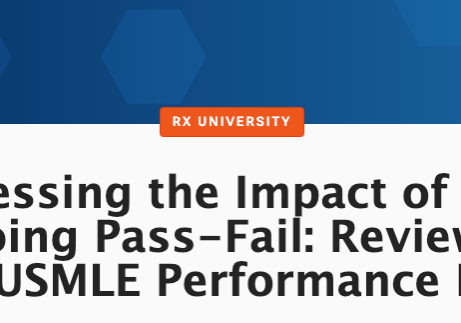By Luke Murray
 This post is part of a series called “Med School Done Right,” which will look at not just succeeding in medical school in the narrow terms of “getting good grades,” but at shaping the kind of experiences you want to have during these (usually) four very important years of your life.
This post is part of a series called “Med School Done Right,” which will look at not just succeeding in medical school in the narrow terms of “getting good grades,” but at shaping the kind of experiences you want to have during these (usually) four very important years of your life.
Read part one of this story here.
When I took the ACLS course during my internal medicine rotation in the fall of 2011, we were told by the previous class that the course would be easy – that everybody passed last year and the course was no big deal. I decided to adopt this cavalier and apathetic attitude, along with my classmates, despite being a lifeguard for five summers and having personal experience with the importance of having a more advanced version of those basic first aid & CPR skills.
I failed my first attempt at the exam, along with over a third of my group that didn’t take it very seriously. Apparently, the teachers changed things for the 2011/2012 year after hearing the “It’s too easy” song from the previous year’s class. I retook the course and passed, taking it only slightly more seriously the second time around.
Deep down, I knew it was important, but I let the prevailing attitude of my classmates influence and determine my own attitude.
Two months ago, while I was sitting in a plane on the runway, en route to take the Step 2 CS exam, a woman went into cardiac arrest a dozen or so rows behind me. I heard “Is there a doctor on the plane?” from one of the flight attendants as she walked by me, and I stood up, terrified, knowing how unprepared I was.
I found myself doing compressions, giving defibrillating shocks, and trying desperately to remember when and if to give epinephrine, atropine, etc. The minutes went by as I gave shock after shock, compressions, and I ultimately knew that we should be doing other things to help, but I wasn’t sure what those things were.
The woman never regained consciousness, was carried off the plane still cyanotic from head to toe, and was driven off in an ambulance. I went back to my seat and held it together until the pilot came over the loudspeaker and said he appreciated the assistance of the medical professional passengers that worked on the woman. He said he was thankful for the “perfect” care we were able to give during the crisis. I knew the care was embarrassingly far from perfect, and I knew it was my fault for not caring about something that I knew mattered when I had been given the opportunity to truly learn it well.
I cried hard into my hands, trying unsuccessfully to hide my sadness and shame from the passengers on both sides of my middle seat. It was one of the worst feelings of my life. And it was completely avoidable.
There are specialties that people don’t care about; skills that people say don’t matter. It’s unrealistic to expect to learn and care about everything, but part of ‘doing medical school right’ and deciding what kind of doctor you want to be is clarifying the skills and knowledge that will matter to you personally and not letting popular opinion determine what is important to you.
You don’t want to find yourself in a situation resembling my own experience on the plane and be filled with regret over something over which you have the utmost control. Just as importantly, you don’t want to let your professional or academic priorities be determined by popular opinion.
Want to read more posts about doing med school “right?” Check out Luke’s article series here.




this was really thought-provoking. great article!
I found your blog web site on google and examine just a few of your early posts. Continue to keep up the very good operate. I simply extra up your RSS feed to my MSN News Reader. Looking for ahead to reading extra from you later on!?
I do agree with all of the ideas you’ve presented in your post. They’re really convincing and will certainly work. Still, the posts are very short for novices. Could you please extend them a little from next time? Thanks for the post.
A different issue is that video gaming became one of the all-time greatest forms of fun for people of every age group. Kids play video games, and also adults do, too. Your XBox 360 is among the favorite games systems for people who love to have hundreds of activities available to them, plus who like to play live with people all over the world. Many thanks for sharing your ideas.